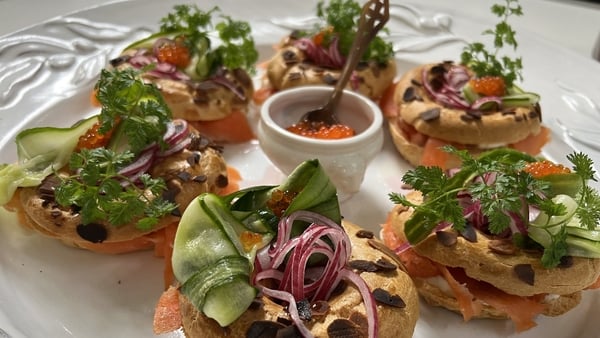The calm waters of Pirappanvalasai Beach along the Palk Strait usually scream shades of azure under the unforgiving afternoon sun. On one afternoon in September, this stretch of white sand along the bay, saw a group of spectators snug under a tent, breaking into loud cheers. They were here from villages in and around Rameswaram, to show support in numbers as young stand up paddlers from the neighbourhood participated in the Palkbay SUP Challenge 2024.
For those of us who are not used to the pristine blues and whites of the south-eastern coast, the challenge was a sight to behold. The waters were dotted by white and orange buoys and floats, markers of distance for a technical Stand Up Paddle (SUP) race. The third national edition, which saw 120 participants from around the country, stretched SUP’s possibilities of becoming the ‘next big thing’ in water sports.
Fourteen-year-old Arathi was one among them. Having just won in the Groms (U-16 girls) category, she said, “I have been paddling for the last seven years.” But what keeps her interested in the sport? “It will be useful for me in the future,” she declared. Later that weekend, the paddler from Pirappanvalasai went on to win the Women’s Nationals and was ascertained one of the promising stars to have come out of the coast, an evidence of Tamil Nadu leading this sporting movement.

Paddlers at Mangrove Eco Bay Camp in Chidambaram | Photo Credit: special arrangement
Stand up paddleboarding, a less intimidating cousin of surfing, makes use of a longboard and a paddle to glide across waves, or still waters. The tricky side of the sport shows itself when one’s balance is challenged by small waves or ripples. For more than a decade, surfing’s homegrown revolution along the East coast — especially in Kovalam and Mamallapuram — has produced athletes who represent India on a global scale. Now, SUP follows suit as the southern coastline moulds athletes from villages along Puducherry, Chidambaram, Rameswaram and Thoothukudi, apart from Kovalam and Mamallapuram.
Accessible to all
The sport is considered far more accessible, both in the competitive circles and for recreational purposes. This decade is earmarked for its development, says Jehan Driver, founder, Quest Adventure Sports Academy in Ramanathapuram.
“Arathi’s win goes to say that we need to encourage coastal youth with access to equipment and guidance to come forward and participate. They know their waters well. It has to start with creating awareness. When one 14-year-old sees another 14-year-old competing, they would want to participate too,” says Jehan, who is also her coach. He tracks a year-on-year growth of SUP competitors at around 30%. Away from this circle, Jehan adds that there is a 60% growth in the number of people wanting to learn SUP as an interesting sport-based activity.
Even for this competition, a lot of athletes arrived almost a month before the event to practise. “It shows good camaraderie, and also opens up the sport to other people,” adds Jehan.
Further up the coast, At Mangrove Bay Eco Camp in Chidambaram, 90% of the students come for recreation. “It is an easy sport to pick up. I picked up the paddle when I was 35,” says geologist-turned-stand up paddler Kumaran Mahalingam whose first brush with SUP happened in 2014, in Kovalam.

There were no dedicated schools for SUP then. He reminisces, “While surfing was considered a pioneer sport, SUP was almost a backup sport. Whenever the sea was flat, people would do stand up paddling. When I was enrolled in a surfing class, while the sea was choppy, they took me to a quarry nearby for SUP. That’s how I discovered it.” His initial pursuit of the sport hinged on advocacy for clean waters. Through a programme titled Discover SUP which later became Paddle for Future at Chennai in 2016, he took the sport to the public .
“In western countries, it’s a billion-dollar sport. Thousands of people paddle together in marathons. In another five years, it will be huge here! So now, we have equipment, dedicated schools, water bodies and a federation, so that shows great promise,” says Kumaran.
While the Arabian Sea is flatter, a choppy Bay of Bengal is highly seasonal and not ideal for SUP beginners, Kumaran takes his students to the Kollidam river which is part of the Pichavaram ecosystem. Kumaran believes that the location is Mangrove Bay’s biggest win.
“It is the largest estuary in Tamil Nadu. For first time paddlers, it is best to start with a flat sea or backwaters. But people who do ocean-paddling, will have a better skillset and more strength.” This works in their favour during competitions.

Participant at the Palkbay SUP Challenge 2024 | Photo Credit: special arrangement
The wheels are turning
SUP as a sport is governed by the International Surfing Association, and subsequently in India by the Surfing Federation of India, and at the State-level by the Tamil Nadu Surfing Association (TNSA.
While the city knows Sekar Patchai for the breakout surf star that he is, the surfer has now been entrusted with a task by TNSA: to develop SUP within the State. Sekar is of the opinion that SUP is tougher to tackle. He continues, “In surfing, after we ride a wave, there is time for recovery. You can relax and wait for the next wave. SUP is like a sprint, you cannot stop once you start.”
The need of the hour is to hone young talent, says Sekar who has been the reigning national SUP champion for the last seven years. Sekar also helms Cove, a surfing, kayaking and stand up paddle school in Kovalam. “Compared to last year, more girls are learning the sport now,” he says. Most of his regular students are from Kovalam, while those who wish to tap into the meditative aspect of the sport, take weekend classes for leisure.

Sekar Patchai, national SUP champion from Kovalam | Photo Credit: special arrangement
Quest runs a free training programme for children and youth around the villages in Rameswaram. The team sees a regular turnout of at least 15 children every week from Pamban, Ariyaman, Irumeni and surrounding villages other than Pirappanvalasai. Kumaran’s focus too is now on growing the sport’s competitive reach. Two-month-long free SUP camps, exclusively for athletes, are on the cards.
“If there’s a sport that anyone can do, it is SUP. I have students who are as young as three, and as old as 70,” adds Sekar.
Back on Pirappanvalasai beach, some national champions have now plonked in the water, seeking respite from the blazing sun. Neck deep in the ocean, they turn spectators, as cheers resound every time a contemporary takes lead. Their paddles are resting.
Only until the next race.
Published - October 12, 2024 01:09 pm IST



